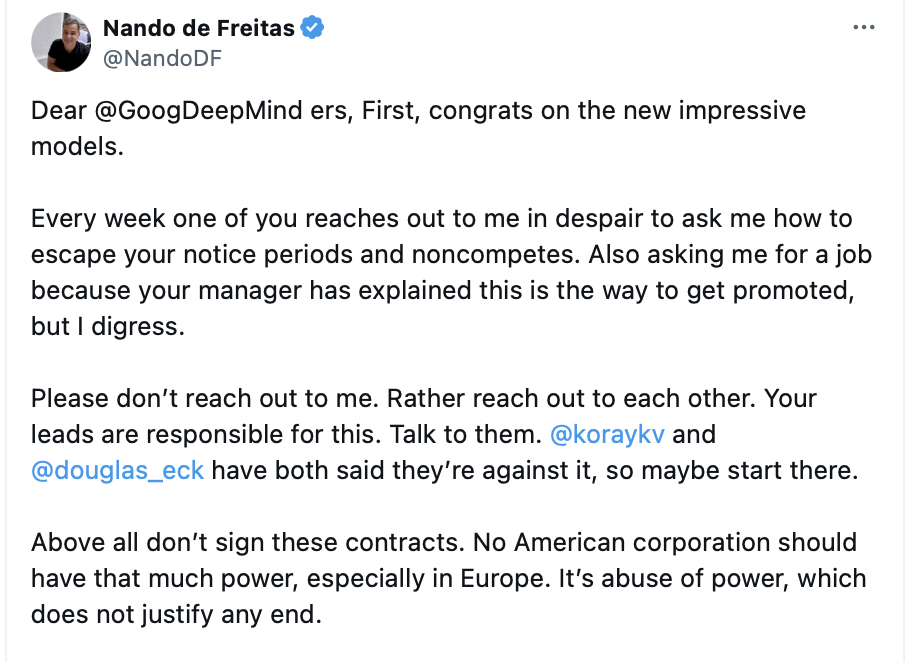Google doesn’t want its AI talent to join Microsoft or OpenAI — so it’s paying them to stay

In the escalating war for top AI talent, Google is taking an unconventional approach: it’s allegedly paying some of its DeepMind employees to do nothing—for an entire year—just to stop them from defecting to rivals like Microsoft or OpenAI.
According to a report by Business Insider, DeepMind, Google’s London-based AI research lab, is enforcing what have been described as “aggressive” noncompete agreements on select employees. These contracts prevent them from joining competing AI firms for up to 12 months—effectively sidelining them from one of the fastest-moving fields in tech, while still paying them.
The report adds that while some employees are compensated during this forced hiatus, the arrangement can feel like a double-edged sword: they’re financially secure but cut off from the cutting edge of AI innovation. For researchers whose careers thrive on momentum, being removed from action for a year can be a significant setback.
This practice, while controversial, is legal in the U.K., where DeepMind is headquartered. In contrast, the United States has taken a tougher stance on noncompete clauses. The Federal Trade Commission (FTC) moved last year to ban most noncompetes across the country, citing them as anti-competitive and harmful to worker mobility. However, those protections don’t apply to employees based in London.
Microsoft’s leadership has not held back in criticising the move. Last month, Mustafa Suleyman, now Vice President of AI at Microsoft and himself a DeepMind co-founder, posted on X (formerly Twitter) about the number of DeepMind staff reaching out to him in frustration over their noncompete restrictions.
“Every week one of you reaches out to me in despair to ask me how to escape your notice periods and noncompetes. Also asking me for a job because your manager has explained this is the way to get promoted, but I digress,” he wrote.
Suleyman urged DeepMind employees not to sign such agreements, calling the practice “an abuse of power.” He added, “No American corporation should have that much power, especially in Europe.”

Despite the internal frustration, the AI arms race is only heating up. Companies like Google, Microsoft, and OpenAI are locked in fierce competition to build the next generation of large language models and intelligent systems. In such an environment, retaining top AI talent is more critical—and difficult—than ever.
For Google, keeping researchers out of competitors’ hands may be a strategic priority. But as public criticism mounts and frustrated talent voices grow louder, it remains to be seen how sustainable—or ethical—this approach will be.
In the meantime, as some of the world’s most brilliant minds in AI sit idle on Google’s payroll, the broader industry is left asking: at what point does talent retention cross the line into talent suppression?











